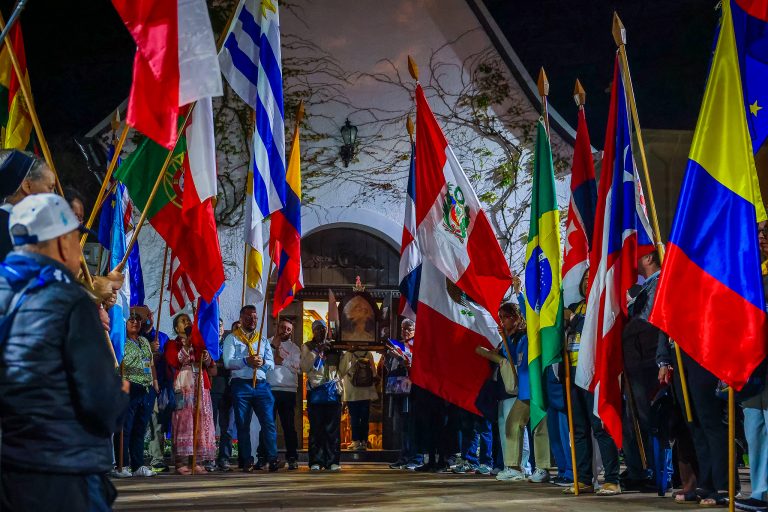When we contemplate the wonders wrought through the intercession of the Pilgrim Mother of Schoenstatt in so many countries reached by this apostolic work, we cannot help but raise our hymn of gratitude to God for the life and work of the venerable deacon João Luiz Pozzobon. It has been 75 years since he began his journey, during which he has traveled thousands of miles and visited millions of families worldwide. What makes this deacon’s work so important for the Church and the world is that it reflects the union between professed faith and lived faith. Faith and prayer are embodied in charity.
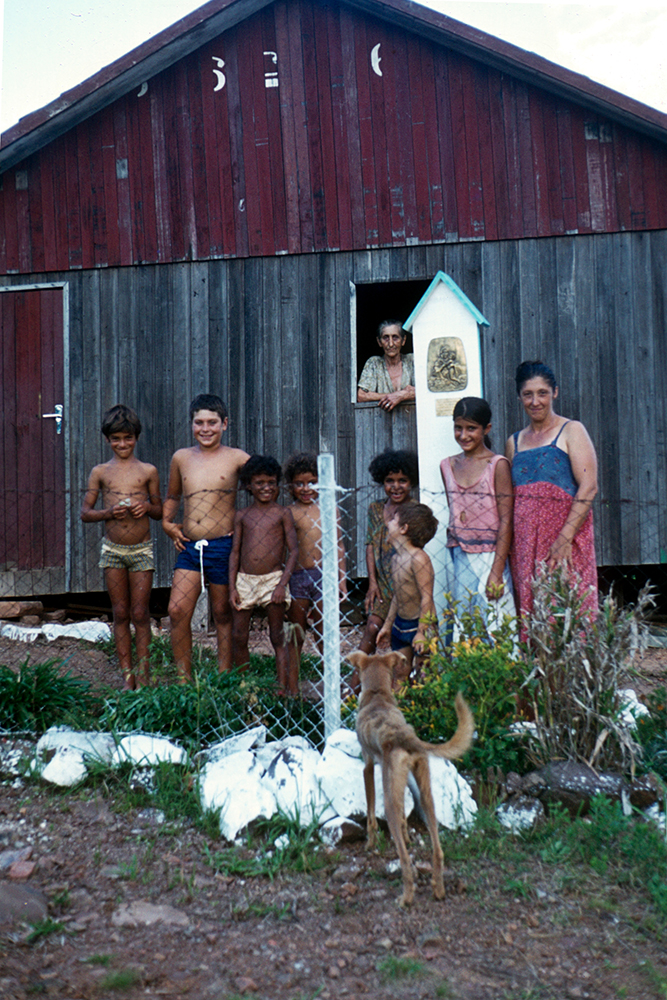
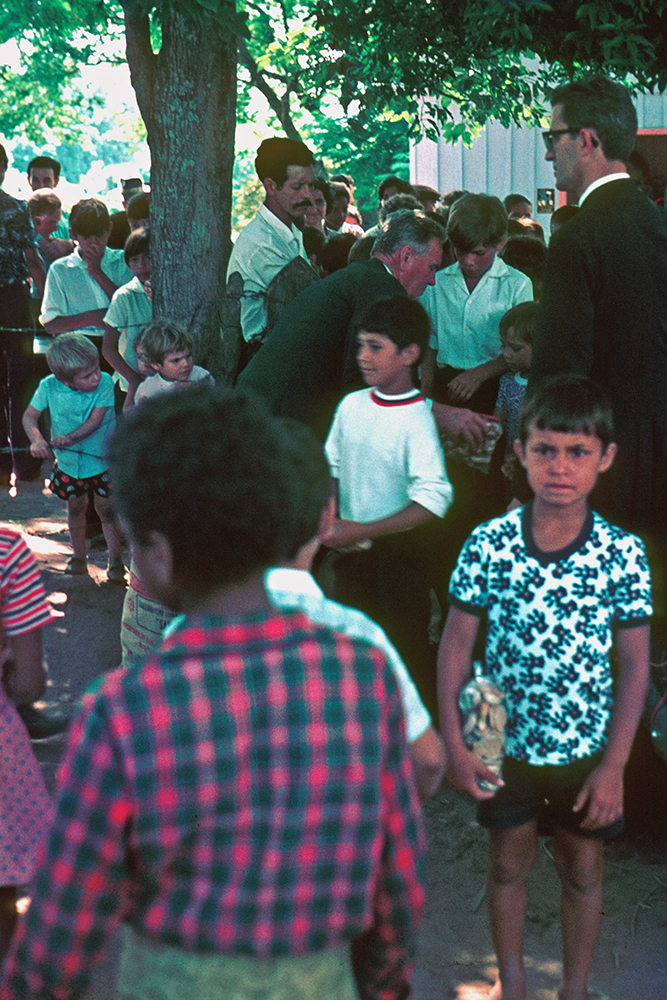
João Luiz Pozzobon founded Vila Nobre da Caridade on May 1, 1954, and grew to include 14 houses. Its goal was to provide free, temporary housing to people experiencing poverty, allowing them to establish themselves financially. Among its objectives, it also sought to legalize families in civil (document issuance) and religious (sacraments) matters; provide schooling for children; teach residents a trade and how to work; and foster a family spirit.
Charity that transforms reality
One way the deacon found to exercise charity is through the construction and maintenance of several centers that welcome and provide comprehensive care to people, with “Vila Nobre da Caridade” (Noble Town of Charity) being the principal place of care for the poor.
During a visit to Vila Nobre da Caridade, Santa Maria/RS, Brazil, guided by João Pozzobon himself, I was able to see how every aspect of this project was carefully implemented with human dignity in mind. Charity is the fruit and concrete expression of the Gospel, as taught by the Holy Church. Alongside each of the chapels he built on the outskirts of Santa Maria, he built in an exemplary way, on a small scale, what should be promoted on a large scale in the Church and in a society that carries Christian values within it.
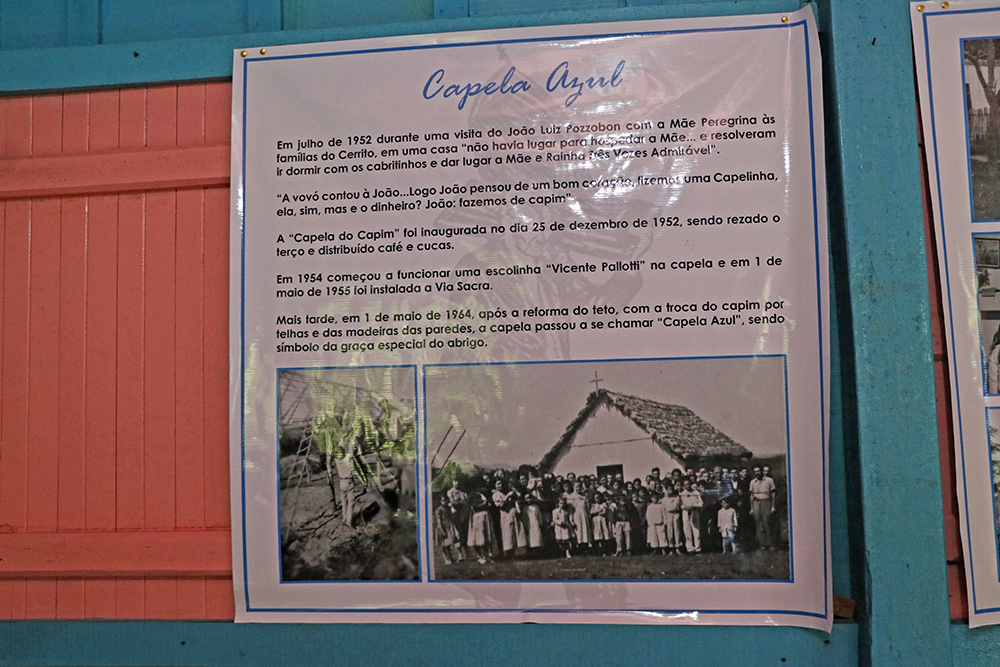
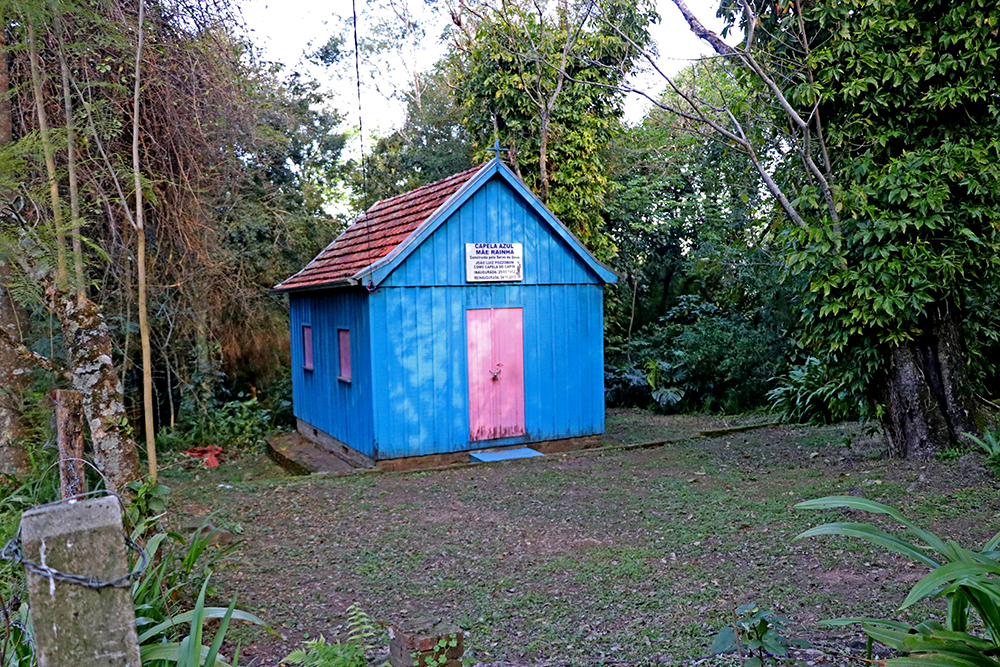
Without money or resources, the first chapel was built with straw in 1952. Two years later, in 1954, a small school began operating in that chapel for children. Later, in 1964, the place was renovated and became the “Blue Chapel.”
Deacon João Pozzobon’s charitable action is based on the principles of faith and solidarity contained in the compendium of the Social Doctrine of the Church¹. It is not just a matter of offering a bowl of soup on special Christian dates. Without underestimating this practice, since hunger cannot wait, João Pozzobon’s gaze went beyond that and contemplated the various dimensions and human needs. Among other things, this included: awakening the inner strength to start over and regain lost hope, reestablishing family and social ties in inhumane social conditions, education and support as a human being, and, consequently, reintegration into the world of work. This form of charity truly springs from the Gospel. Pope Francis (2013-2025) teaches:
“Nor should our loving response to God be seen simply as an accumulation of small personal gestures to individuals in need, a kind of “charity à la carte”, or a series of acts aimed solely at easing our conscience. The Gospel is about the kingdom of God (cf. Lk 4:43); it is about loving God who reigns in our world. To the extent that he reigns within us, the life of society will be a setting for universal fraternity, justice, peace and dignity”²
He built homes, schools, and chapels: shelter, education, and faith
For his work to be a place of faith and prayer (chapel), a place of education (school), and a place of decent housing (public housing complex), João Pozzobon spared no effort alongside the community and local authorities to convince people and gather the necessary materials to build and maintain his charitable work. He identified himself with the person in the Gospel who achieved things through his persistence (cf. Lk 11). Most importantly, his repeated “knocking on doors” ensured him everything he needed for his mission, thereby demonstrating his unconditional love for the Mother and her Divine Son.
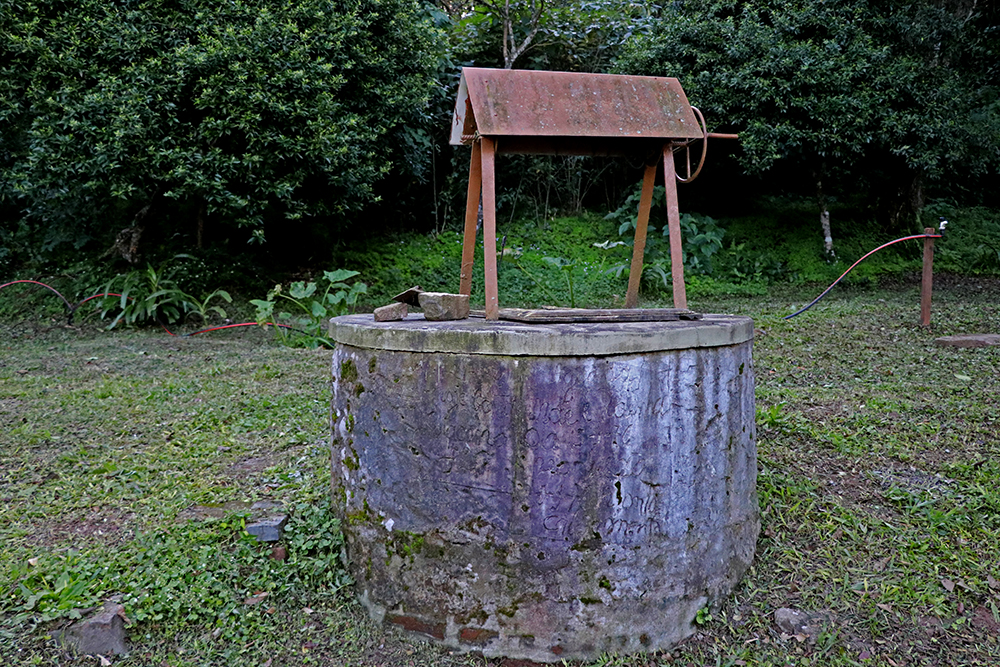
Apostolate of the Pilgrim Mother: a way of following Christ
Following Christ is demanding and challenging. The charity that João Pozzobon demonstrated during his visits with the Pilgrim Mother also involved risks. He carried out his diaconal work with love, but also with a good dose of courage. During his visits to prisons, for example, he did not hesitate to enter areas with the highest security requirements, carrying the image of the Pilgrim Virgin. Somehow, he managed to convince those around him that, with the Pilgrim Mother, they were safe, even when he entered places where others did not dare to go.
João Pozzobon was an authentic missionary disciple who was open to dialogue. He also knocked on the doors of homes of other faiths and religions. However, he did not impose his faith on anyone. The next day, he would return to collect the Pilgrim Mother and was convinced that his visit had been necessary for that home. Breaking down barriers and meeting everyone without distinction is characteristic of those who have understood the most profound message of the Gospel.
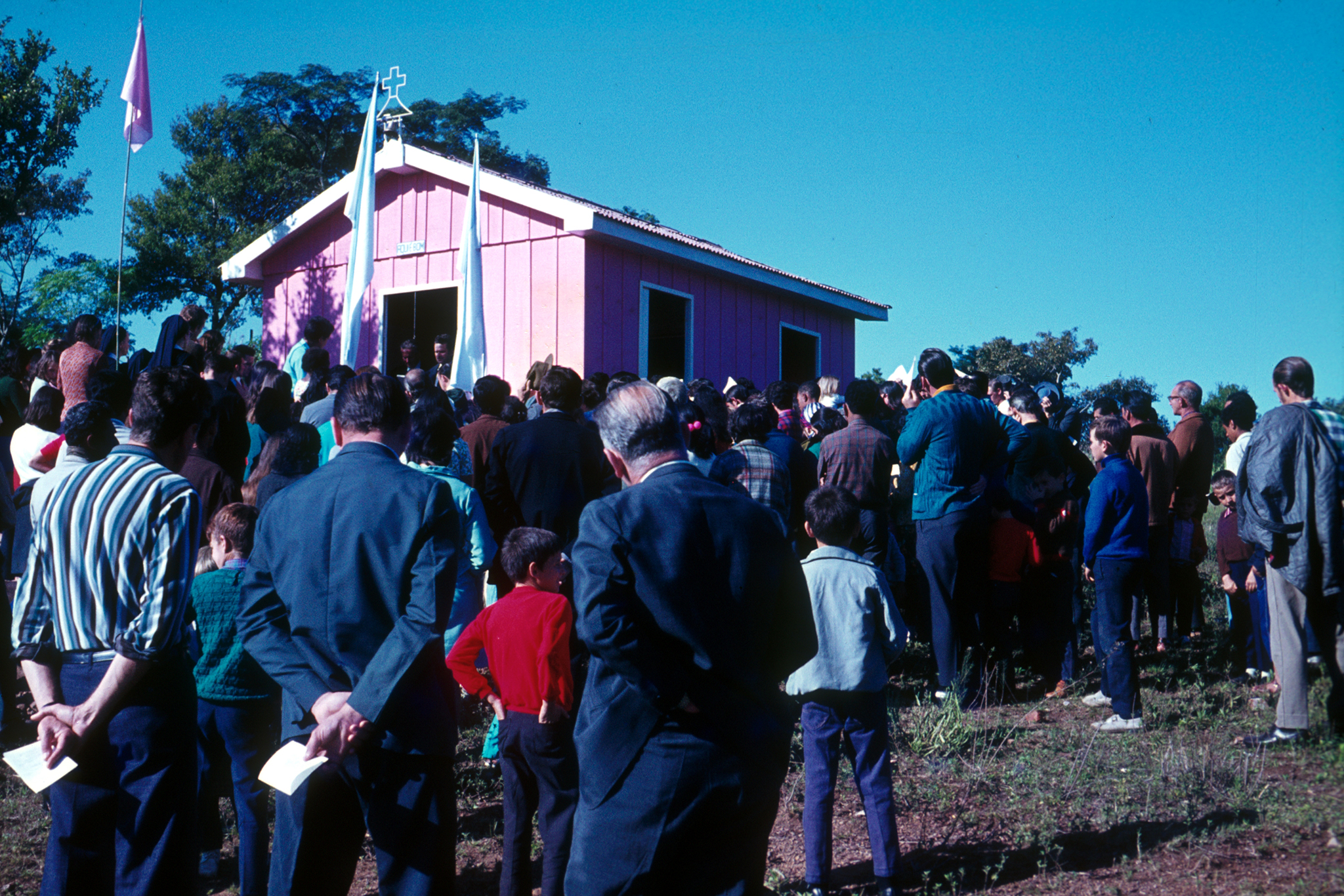
Following his example, many families regularly welcome the Pilgrim Mother into their homes. She invites us to follow the deacon’s example in exercising charity, whether in our own families, in our neighborhoods, or through our commitment to the Pilgrim Mother Apostolate or charitable projects in our parish communities. The possibilities are numerous, and each one is a call from God for our faith to find concrete expressions, so that we may become evangelizers who transform reality.
Translation: Sr. M. Lourdes Macías
References
[1] Cf. Pontifical Council for Justice and Peace. Compendium of the Social Doctrine of the Church, 2004.
[2] Pope Francis, Evangelii Gaudium, 2013, n. 180.



